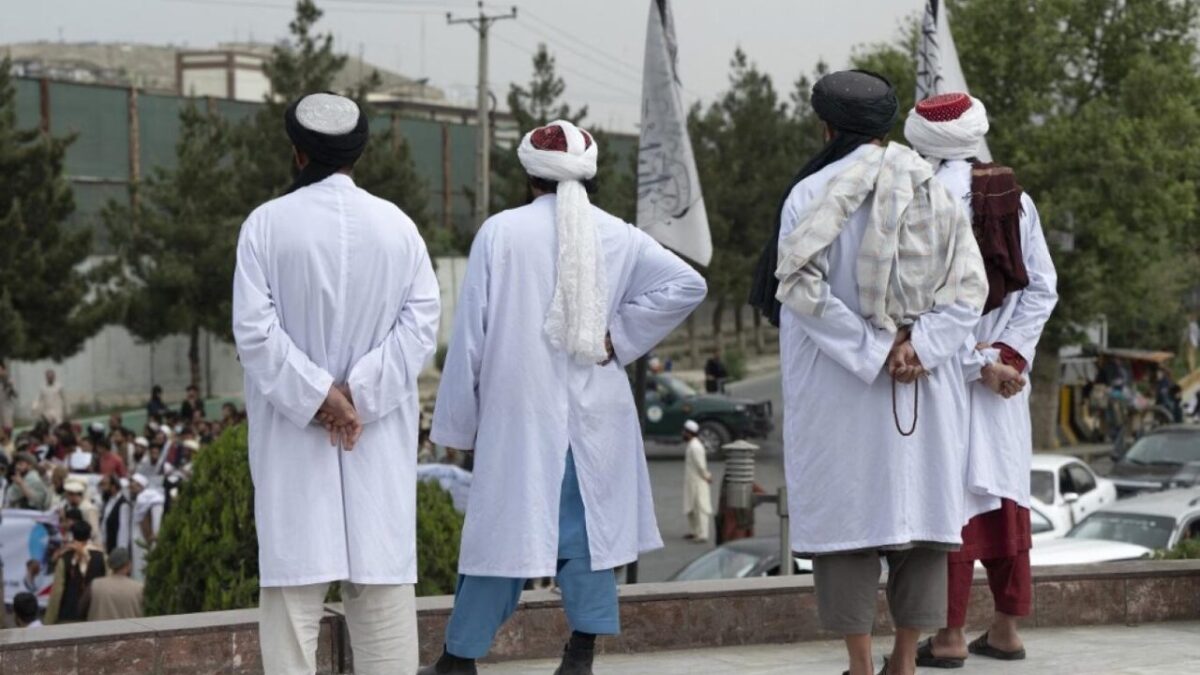KANDAHAR, Afghanistan — Taliban leader Hibatullah Akhundzada, in a two-day meeting in Kandahar with Khalid Hanafi, the Taliban minister for the Promotion of Virtue and the Prevention of Vice (PVPV), and provincial PVPV chiefs, outlined the role of the morality police, or PVPV enforcers, as “reformers of society” responsible for fostering a “healthy community” through youth guidance and the enforcement of Islamic principles.
“The mohtasibs [PVPV enforcers or morality police] have the responsibility of reforming the people and the younger generation,” Akhundzada said, according to a Taliban statement. “Promoting virtue and preventing vice is one of the main goals of an Islamic system, and its implementation ensures the stability and strength of such a system.”
Expanded powers for morality police
In August, the Taliban introduced their morality law, granting PVPV enforcers the authority to detain and punish individuals. While the law has raised concerns about abuses, Akhundzada stressed that the morality police should serve the community with care and fairness.
“Mohtasibs must listen to the problems of the people,” he said. “They should work to resolve issues that harm society, such as price gouging and hoarding, ensure the rights of the oppressed, and strive to improve the intellectual and moral well-being of the youth. Only through such efforts can a healthy environment be created in society.”
Akhundzada also emphasized, “The enforcement of virtue must be accompanied by gentleness and appropriate behavior.”
Speaking at the same gathering, Khalid Hanafi highlighted the personal attributes required of PVPV enforcers. “A mohtasib must embody knowledge, sincerity, piety, justice, and composure,” he said. “The ministry plays a vital role in strengthening the connection between the people and the government, and our efforts to protect the rights of the people will continue.”
Arrests and controversial regulations
Over the past month, PVPV enforcers have detained more than 40 individuals across the country, according to ministry statements. Many of these arrests have targeted women and girls for alleged violations of the Taliban’s dress code or engaging in relationships outside marriage.
Under the Taliban’s new law, morality police have sweeping authority to penalize women for actions deemed noncompliant, including failing to cover their faces or voices. One of the most contentious sections of the law prohibits women’s voices, including public singing or recitations, branding them as inappropriate (awrah).
Article 13 of the regulations mandates that women cover their entire bodies, including their faces, to avoid what the Taliban describes as “temptation.” It states: “A woman’s voice, whether in the form of songs, recitations, or public speech, is inappropriate. If a woman leaves her home for any essential need, she is obligated to conceal her voice, face, and body.”
The regulation also allows mohtasibs to detain women who fail to comply.
These restrictions have sparked widespread criticism within Afghanistan and internationally. Women’s rights advocates and global organizations have condemned the laws as oppressive and discriminatory. However, Taliban officials continue to defend the regulations, asserting they are essential for building an Islamic society.
Despite calls for reform, Akhundzada reiterated the Taliban’s commitment to enforcing these policies. “The system’s stability depends on the proper implementation of these principles,” he said, reaffirming the central role of the PVPV enforcers in maintaining what the Taliban views as a virtuous society.





